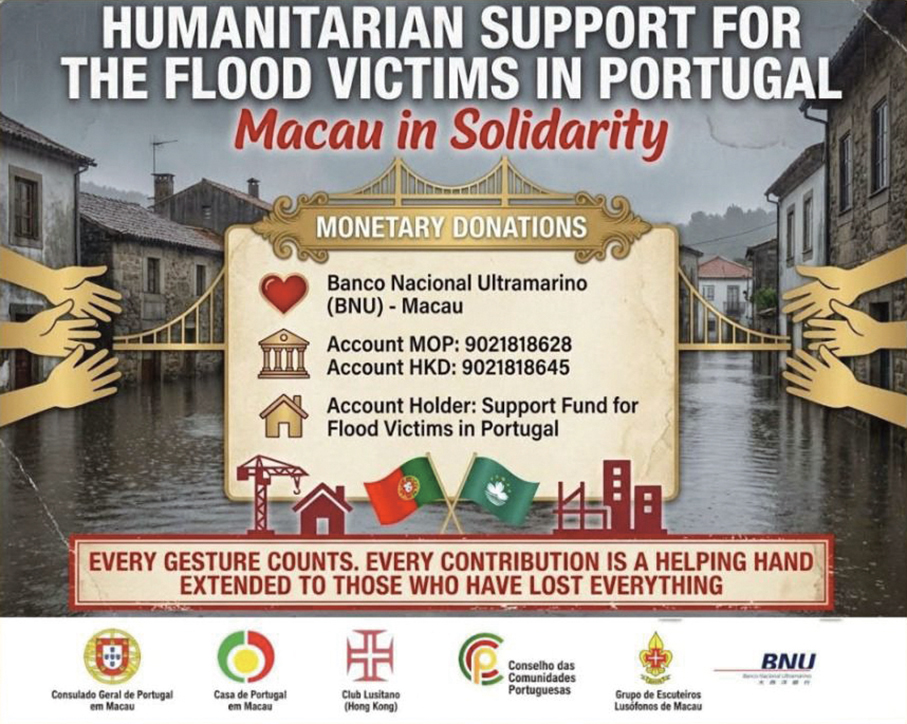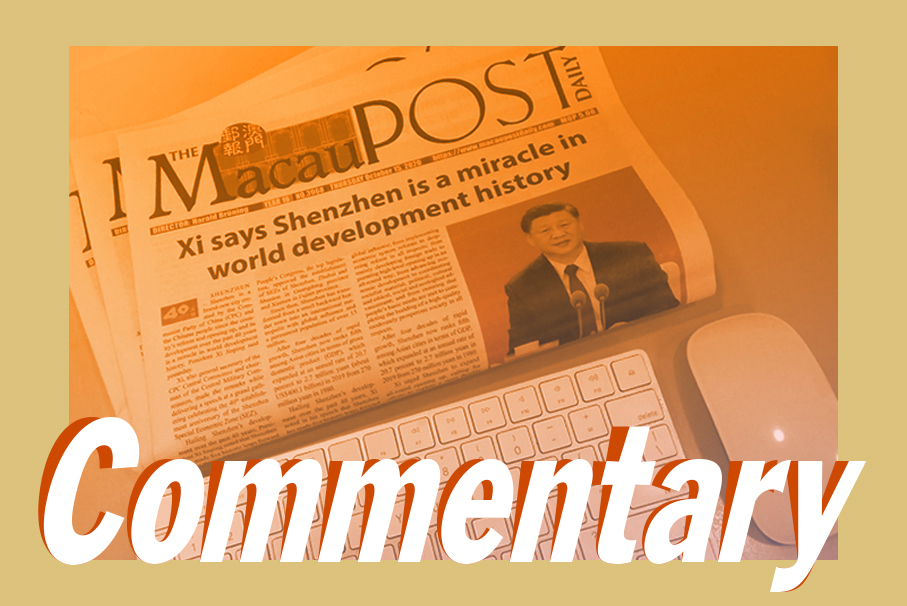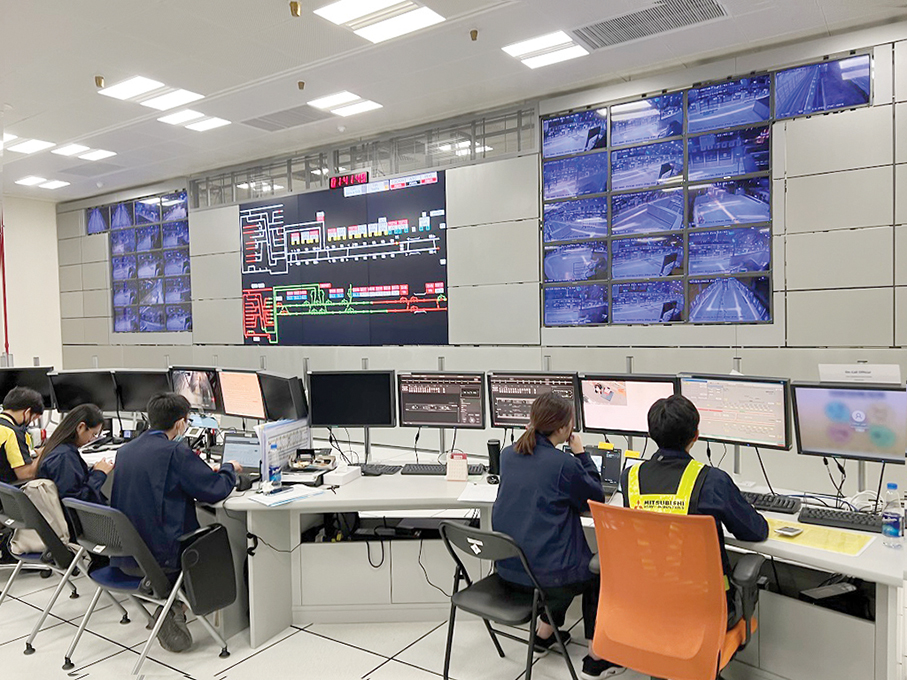Editorial
The government’s announcement on Saturday that it has provisionally granted new concessions to Macau’s six incumbent gaming operators had widely been expected although it still contained a pinch of surprise.
And the announcement does not only signal continuity on the gaming front but also heralds some major changes in how the sector is supposed to be run in the next 10 years.
The announcement’s element of surprise was the ranking of the six successful bidders, according to the marks that the government’s tender commission gave their respective development and investment proposals: MGM Grand Paradise (what a beautiful name!) came in first, SJM Resorts finished last.
Interestingly enough, both companies are headed by daughters of Stanley Ho Hung Sun, the late prime mover behind Macau’s modern gaming industry – MGM’s Pansy Ho Chiu King and (more recently) SJM’s Daisy Ho Chiu Fung. MGM is one of Macau’s smaller gaming operators, running just two of the city’s 37 casinos. SJM, which owns 20 casinos, is Macau’s oldest gaming operator, being the offspring of Stanley Ho’s STDM which ran Macau’s casino monopoly concession for four decades until 2001.
Pansy and Daisy Ho’s brother Lawrence Ho Yau Lung’s Melco Resorts (Macau) finished in fourth place. Galaxy Casino and Venetian Macau finished second and third, respectively, while the bid presented by Wynn Resorts (Macau) placed fifth. Details of the six successful tenderers’ rival bids remain to be revealed. I am sure they will make interesting reading.
Secretary for Administration and Justice André Cheong Weng Chon said, rather cryptically, during Saturday’s press conference about the announcement that the seventh bidder, a local subsidiary of Malaysia’s gaming giant Genting, known as GMM, had played a “positive” role in the tender.
Let’s see whether Genting will join Macau’s gaming and/or tourism industry in one way or the other before long.
Cheong and his fellow policy secretaries Lei Wai Nong (Economy and Finance) and Elsie Ao Ieong U (Social Affairs and Culture) underlined at the presser that the six victorious bidders pledged three main aspects of their future business activities: ensuring local employment, broadening Macau’s visitor source markets and increasing their non-gaming attractions.
This three-point requirement must be seen within the ambit of the government’s “1+4” model to “appropriately” diversify the local economy, which Chief Executive Ho Iat Seng recently announced in his 2023 Policy Address, according to which the government will consolidate the development of the city’s tourism and leisure industry while putting special emphasis on promoting the key development of four key industries: 1) big health*; 2) modern finance; 3) high tech; 4) conventions and exhibitions as well as culture and sports.
The government does, indeed, expect a lot from Macau’s “dragon-head” industry’s future activities. Well, that’s perfectly understandable, considering that the current government, as its predecessors, hasn’t granted the city’s gaming operators conventional business licences but rather complex concessions that, sensu lato, are quasi-public-private partnerships (PPPs). The concession model gives the government much more leeway over how the respective firms are to be run than an “ordinary” business licence.
Macau’s gaming industry got off the ground back in 1849 when its first “fantan” (a game of chance involving four objects such as buttons subject to repeated divisions) parlours were legalised with the obvious aim of filling the city’s public coffers.
However, as Jorge Godinho points out in his 2019 book “Os Casinos de Macau” (“The Casinos of Macau), which I highly recommend, Macau’s first fully-fledged casinos have only been around since 1962 when Stanley Ho won the government’s gaming concession monopoly (which lasted until 2001 when the sector was liberalised by the Macau Special Administrative Region under then chief executive Edmund Ho Hau Wah (the two Hos are not related; Chinese characters of their surnames are different).
While the government’s determination to diversify the local economy makes sense as overdependence on just one industry is risky, I am sure that the gaming industry will remain the main pillar of the local economy in the medium term – at least.
Even during the current pandemic, which has made life particularly difficult for Macau’s casino operators, gaming concession taxes still amounted to 29.5 billion patacas in the first 10 months of the year, or 69.0 percent of the government’s current revenue during that period, according to Financial Services Bureau (DSF) figures.
According to the latest available data from the Statistics and Census Bureau (DSEC), the gaming industry had 53,592 full-time employees at the end of June, a decrease of “only” 2,176 year on year, despite the COVID-19-induced downturn in business. Gaming sector employees accounted for some 11.4 percent of Macau’s total labour force in June. Gaming employees’ earnings were down by “just” 1.8 percent year on year, at 23,270 patacas in June. The figures indicate that the gaming industry has proved to be rather resilient during the ongoing pandemic. Of course, unpaid leave has affected quite a few casino workers and junkets’ recent turmoil – much of it self-inflicted – has adversely affected the income of scores of locals.
It remains to be seen if Macau’s gaming-cum-tourism sector will ever be able to reach its record results of 2018 – 35.8 million visitor arrivals and gross gaming revenues of 302.8 billion patacas. Last year, in the midst of the pandemic, Macau logged 7.7 million visitor arrivals and 86.8 billion patacas in gross gaming revenues.
As an optimistic realist and four-decade long local resident, I do believe that our tourism and gaming businesses will be able to make a quick recovery once the COVID-19 menace has been brought under firm control.
The government’s decision to offer gaming operators fiscal benefits for attracting more foreign visitors to Macau is correct, even though I wonder how the measure can be effectively implemented.
In the last pre-pandemic year of 2019, non-foreign visitors, i.e., mainlanders, Hongkongers and Taiwanese, accounted for 92.2 percent of Macau’s total number of visitor arrivals.
Consequently, our gaming operators will have quite a battle on their hands to attract more foreign visitors – once foreign tourists are again allowed to enter Macau, which will depend on the COVID-19 predicament at that time.
I think that Macau can learn a lot from Thailand, Bangkok in particular, which offers tourists a pleasant hotel stay, smilingly efficient staff, and great shopping, sightseeing and culinary delights at affordable prices. Macau should take advantage of two factors that only a few other tourist destinations have: it has been a free port since 1845 and it does not levy value added tax (VAT) on retail sales.
Macau’s malls – which only appeared after the liberalisation of the gaming industry – are popular with tourists and locals alike, and I think there should be more of them. Malls in Bangkok have become huge tourist attractions as they do not only offer shopping but also a wide range of restaurants and many other attractions such as health and wellness services, entertainment (cinemas, video games, indoor sports), showrooms, and even learning hubs.
Ideally, the private tourism-cum-gaming sector and the local government, i.e., the public sector, will form a pro-active partnership to ensure that the central government’s aim to develop Macau into a World Centre of Tourism and Leisure will be achieved. All this must be done in line with China’s national interest, based on the One Country, Two Systems principle. Gaming-related activities that would, for instance, hurt the nation’s financial security, must be nipped in the bud.
In the past, the local authorities have mostly been reactive as far as the gaming industry is concerned. Recent developments such as those in the junket sector require a decidedly more pro-active approach. I would like to see Macau become a tourism brand per se so that tourists wish to visit our city for the simple reason that they want to “see and feel” it as a whole, not just certain aspects of it, such as its casinos, restaurants or heritage.
That’s the case in Bangkok and, for instance, Monaco which I visited as a middle-school student with my family. I remember that we visited the tiny principality (which is about the size of Nam Van) because we just wanted to “see and feel” it for no particular reason other than that it is a famous place. I am sure that’s the reason many people visit, for example, Hong Kong, Shanghai and Beijing.
Ideally, the sheer “brand name” of Macau should suffice to convince tourists to visit our city.
Realistically, there is still much to be done for Macau’s “gambling hub” epithet to fall into oblivion.
– Harald Brüning
* “Big health” aims to deliver a full suite of health services that cover the entire care continuum, with an emphasis on health management and chronic disease management. – Source: WEF










